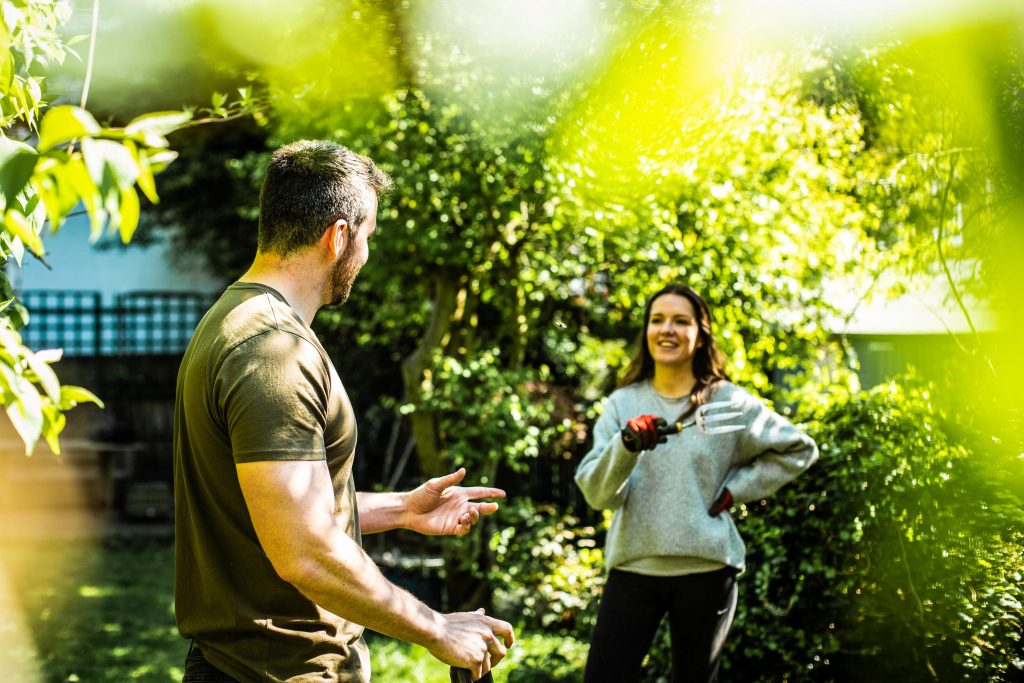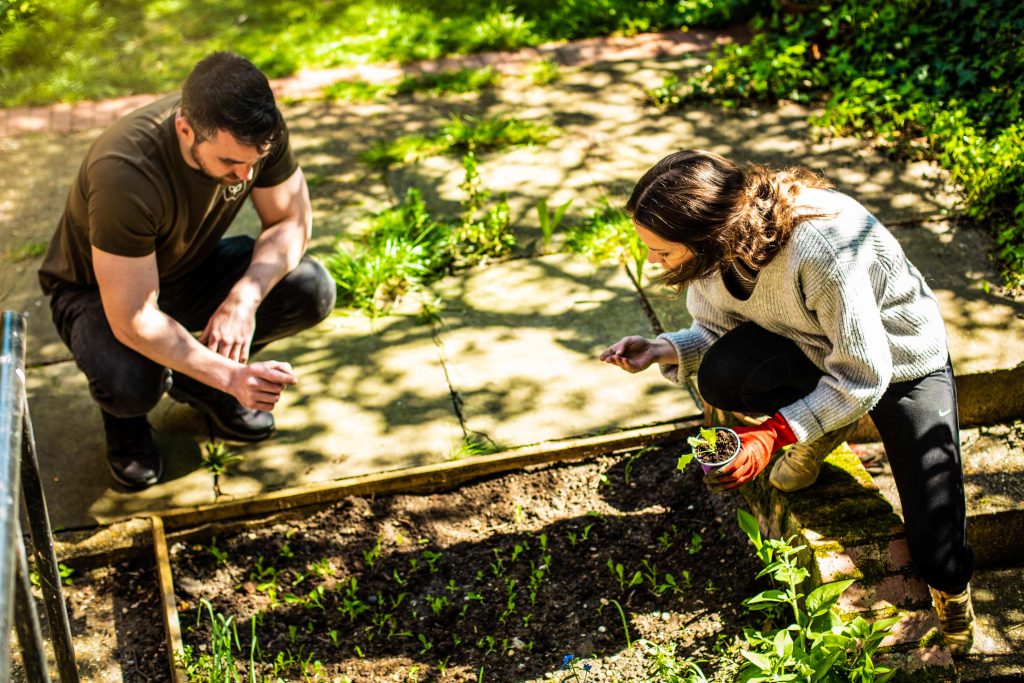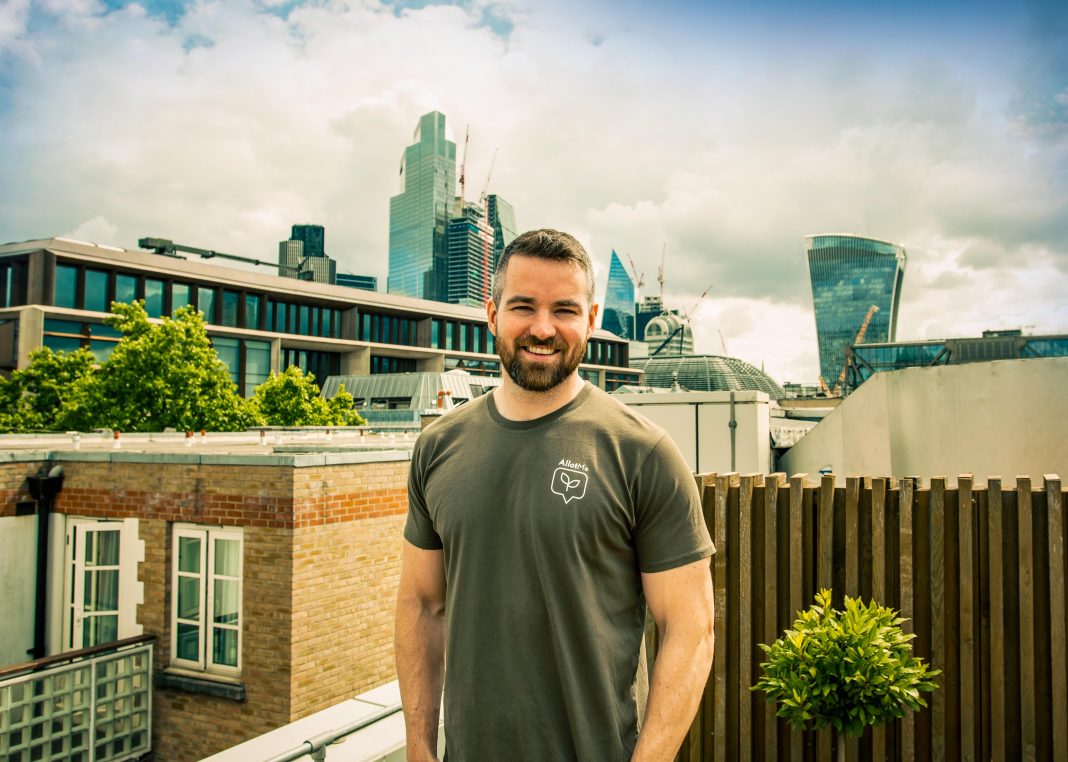How can cities unlock more land for urban agriculture when space comes at such a premium? For London based platform AllotMe, the solution starts with looking more closely at our own backyards.
As any city dweller knows, no property is created equal. Unless you count yourself among the very wealthy, most of us must make trade-offs when choosing a place to live.
Physical space is often the first thing to be sacrificed for the sake of convenience or a premium location, and this includes the green areas that became so prized during the COVID-19 pandemic.
But those who are lucky enough to have a backyard or vegetable patch in their home do not always have the time or inclination to tend to it.
Enter AllotMe.
Described as the ‘Airbnb for gardens’, the online platform matches budding gardeners with property owners renting underused spaces for growing fruit and vegetables.
Plots range from the small to the large and include everything from balconies and undeveloped patches to established gardens and greenhouses.
‘Greenfingers’, as they’re called, can rent a space from anywhere between 5 and 100 pounds per month, although many users offer plots for free.
Launched in London in May 2021, AllotMe now offers spaces across the entire UK, with new listings added every day.
Platform founder Conor Gallagher says the interest in the platform reflects a marked increase in people taking up gardening, particularly younger generations, as well as growing awareness around issues of “sustainability, self sufficiency, mental health, and physical wellbeing”.
But AllotMe’s growing popularity also points to the desire of many city residents to participate more fully in their community, particularly in the shadow of the pandemic. The relationships between gardener and host are more than simple quid pro quo; many blossom into real friendships, centred around the simple pleasures of sharing food and reconnecting with nature.
The arrangement between greenfinger Rosa Mechoni and Helen Webster, the owner of a 120 ft garden in London’s south, is a case in point. The two women connected in the aftermath of personal tragedy – Helen having lost her son and Rosa her husband. While their arrangement is still in its infancy, the relationship has grown into something beyond the four walls of the plot itself.
“There is a friendship and knowledge between us,” Helen told the Observer. “She knows things, I know things. You could say we support each other. I think that’s really nice.”

A Lot is a Lot is a Lot
The ‘allot’ in AllotMe is a reference to the UK’s ubiquitous allotment gardens.
“Allotments are strips of land that are allocated to individuals in an area to grow their own food, often at an extremely low cost to rent. In some parts of the UK, you can rent them for 30 or 40 pounds per year,” explains Conor.
Allotments have a long history in Britain. During rapid industrialisation in the mid 19th century, small pockets of arable land were reserved for workers relocating to cities from rural areas.
These plots became a matter of life and death during World War II. With strict nationwide rationing in place, the country began transforming even more open spaces into productive gardens where residents could grow their own fruit and vegetables.
By 1943, it’s estimated that the ‘Dig for Victory’ campaign created 3.5 million allotments across the country.
Since then, however, land speculation and pressure from developers have seen the number of allotments decrease by almost 65 per cent.
Conor learnt first-hand how difficult it is to find one after relocating to London from Belfast, Northern Ireland.
He says the average waiting time for an allotment in the UK is now 10 years. In some parts of London, lists can extend to 40 years.
While a large part of the problem comes down to a question of limited supply and elevated demand, Conor believes the bureaucracy around the process is one of the biggest stumbling blocks.
“As modern-day consumers, we’ve got UberEATS and Uber for instant accessibility to most things. But, when it comes to trying to find a space to start growing your own food, it’s very archaic.”
The responsibility for allotments can lay with different authorities, from councils to local parishes and private associations, each with their own processes for applying and their own rules around allocations.
Information is also patchwork, at best.
“There’s often no information beyond where the allotment is; there’s no link to contact anyone; there’s nothing.”
Conor says he knew there had to be a better way.
His initial idea was to create an app or website that allotment associations could use to streamline their process, allowing interested parties to find information about plots in their area and apply to join a waiting list.
But the issue of supply remained unaddressed.
“So the question became: well, what is an allotment? Perhaps an allotment could also be somebody’s garden, a patch in church grounds, or a walled garden in a school,” Conor says.

Plotting the Path Forward
The journey from idea to prototype involved plenty of work for the former architect, beginning with a significant amount of research.
“The first year and a half was really just about learning. I wrote up case studies on different forms of urban agriculture and interviewed people from the national allotment society, from community gardens and even vertical farms to find out what the issues and challenges were.”
Conor also recruited friends to take the idea to the streets.
“We were knocking on doors around London to find out whether there was an appetite for this, whether people would list a garden and rent it out to local vegetable growers.”
“That was a good proving ground, you could say, to make sure the concept had legs.”
AllotMe has come a long way from the early “hacked together” version of the website Conor built himself.
The key, he says, is a mixture of perseverance and hope.
“Starting any startup, I think you must have a massive sense of optimism. I certainly had that, even though I knew it was going to be difficult.”
Now, however, Conor is content to watch the platform grow.
“The interesting thing for me is seeing the range of spaces that are listed. Our bread and butter is typically a private garden, but it’s been really cool to see other spaces – a church courtyard or an entire wildflower meadow, for example.”

